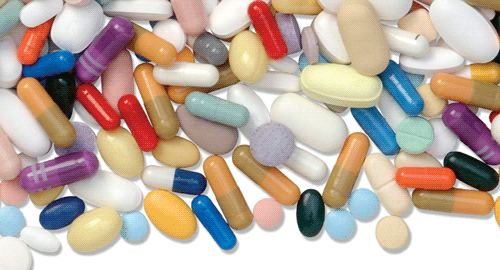 In a recent clinical trial, researchers in Japan evaluated the effectiveness and safety of tocilizumab in pediatric patients with systemic juvenile idiopathic arthritis (sJIA).1 Four hundred seventeen patients were enrolled in, and observed during, this 52-week study, the results of which were published in the Annals of Rheumatic Disease.
In a recent clinical trial, researchers in Japan evaluated the effectiveness and safety of tocilizumab in pediatric patients with systemic juvenile idiopathic arthritis (sJIA).1 Four hundred seventeen patients were enrolled in, and observed during, this 52-week study, the results of which were published in the Annals of Rheumatic Disease.
All new tocilizumab pediatric patients were enrolled and observed from April 2008–February 2012, and additional patients were drawn from participants who were involved in tocilizumab clinical trials. Patients had a median age of 11 years and a median disease duration of four to six years. Also, 48% of participants were female.
Concomitant conditions included respiratory disease, cardiac functional disorders, liver disorders, renal dysfunction, gastrointestinal tract disturbances and diabetes mellitus. Tocilizumab exposure was 407.0 patient-years. Patients received 8 mg/kg tocilizumab once every two weeks.
Researchers collected data on patient characteristics, adverse events and effectiveness parameters. Serious adverse events were higher than reported in previous studies (54.5/100 patient years), rates of serious infections were 18.2/100 patient-years and total adverse events were 224.3/100 patient-years. The most common infection was bacterial pneumonia (10 patients, 2.9/100 patient-years), while eight patients developed gastroenteritis. The second most common adverse events were respiratory, thoracic and mediastinal events with a rate of 34.9/100 patient-years. The systemic features most reported at baseline were fever and rash, occurring in about a third of patients. At baseline, 61% of patients had no systemic sJIA symptoms. Twenty-six macrophage activation syndrome events were reported in 24 patients (6.4/100 patient-years), three of whom had a history of macrophage activation syndrome. There were 14 infusion reactions.
The mean systemic feature score was based on the number of systemic manifestations present of eight sJIA parameters: rash; fever; cervical, axial or inguinal lymphadenopathy; hepatomegaly; splenomegaly; and serositis. The mean systemic feature score decreased from 1.6 at baseline to 0.2 at Week 52 (P<0.0001). At Weeks 4, 8 and 52, 91%, 96% and 99% of patients achieved normal C-reactive protein levels (<0.3 mg/dL), respectively.
The authors conclude that, in these real-world patients, tocilizumab was well tolerated, effective and safe. The higher serious adverse events and serious infection incidences may be due to concomitant disorders and corticosteroid use.
Michele B. Kaufman, PharmD, CGP, RPh, is a freelance medical writer based in New York City and a pharmacist at New York Presbyterian Lower Manhattan Hospital.
Reference
- Yokota S, Itoh Y, Morio T, et al. Tocilizumab in systemic juvenile idiopathic arthritis in a real-world clinical setting: results from 1 year of post-marketing surveillance follow-up of 417 patients in Japan. Ann Rheum Dis. 2016 Sep;75(9):1654–1660. doi: 10.1136/annrheumdis-2015-207818. Epub 2015 Dec 7.

